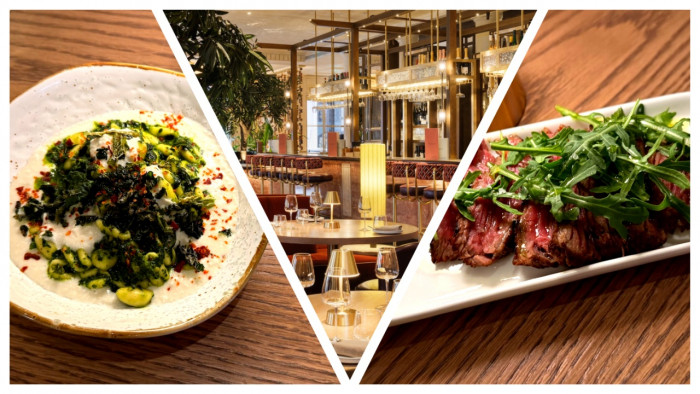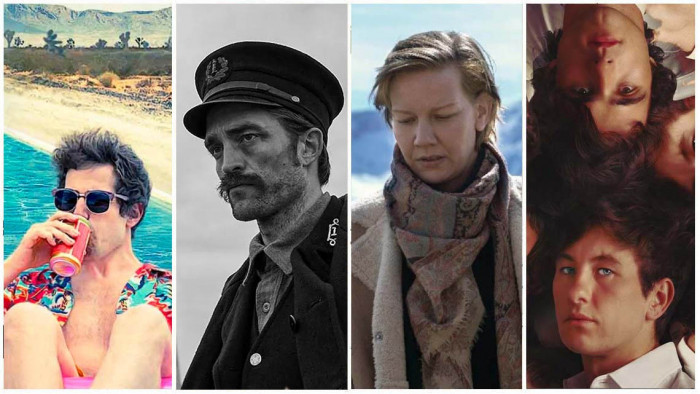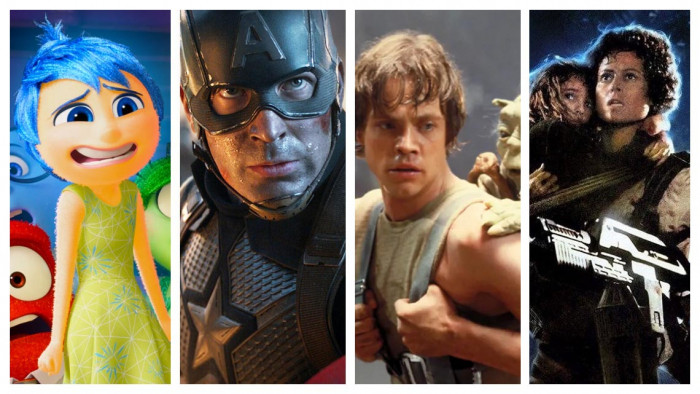Ben Wheatley talks working with Cillian Murphy and his tips for aspiring directors
The 'Free Fire' director gets creative over some steak


Free Fire director Ben Wheatley and ShortList's Andrew Dickens get creative over some steak.
“Where do you get your ideas?” As far as questions go, it’s as old as they come, aimed at every author or filmmaker who’s ever had contact with another human being. It’s asked because we all think we have a book or a film in us, and we hope these storytellers will provide a magic key to unlock it.
The brutal truth, of course, is that we haven’t, and they won’t, but never let reality take a dump on your dreams. So, today I’ll not only ask the question, but also witness and participate in the creative process of someone who lives on ideas: Ben Wheatley, the man and mind behind films such as Kill List, Sightseers and High-Rise.
As we lunch on steak frites in a Leeds restaurant, my aim is to chew the fat, literally and metaphorically, with Wheatley and come up with an original film idea – and, just maybe, my one-way ticket from Dullsville to Hollywood.
But before the inspiration, the perspiration: if we’re to collaborate, I need to understand Wheatley’s method. No better place to start than the conception of his latest film, Free Fire, which he both scripted (along with his writing partner and wife, Amy Jump) and directed.
FEEDING THE FIRE
It sees an arms deal taking place in Boston between IRA soldiers (Cillian Murphy, Michael Smiley) and a South African gun-runner (Sharlto Copley), with various brokers and hangers-on thrown into the mix, including Armie Hammer, Brie Larson and Sam Riley. Unsurprisingly, they don’t all shake hands and go home happy, and – clue’s in the name – we’re soon witnessing a funny, frenetic and exquisitely long shootout.
“Sometimes you think about an actor, what you want them to do,” says Wheatley, pronging some spinach with his fork (his steak’s sans frites, as he’s currently touring the film and trying to survive the hotel-restaurant-hotel lifestyle). “I’d met Cillian, got on with him, then wrote the part for him. That’s how it started. I wanted Michael Smiley. How’d they work together? I wanted to make an action movie and do an American film. Then, why are they there? I was researching the Troubles and read how the IRA smuggled guns into Belfast using the QE2. They’re those guys. Now you’ve got a structure.
“Then another set of ideas come in. Years ago, I researched an FBI transcript of a shootout in Miami. It went on for 40 minutes and was chaotic. That’s a film in itself.”

Wheatley’s an ideas machine. He wrote six scripts last year, he tells me, and has countless sparks and seeds, in his head and on paper, which might one day form something you get to see.
“I have ideas all the time. I worry when I don’t. I listen to a lot of music and let my thoughts float around. It’s not a choice; if I’m left with paper and a pen, I’ll draw or make
something up.
“Some ideas reoccur. If they don’t, they’re probably not very good. I think about what films are missing and I want to see. I read the news and surf the web a lot. I read a lot of political stuff, and a lot of technology stuff.
“Often the scripts are about mine and Amy’s relationship. Not actual incidents, but experiences through the prism of genre. That’s how genre films work – they relate to our lives. People like crime films because they’re about work: you’ve got a boss, you don’t like your boss, you get fired, you need money. They could be about a plumber, but they’re about shooting people.”
What’s his tip for wannabes?
“Don’t be precious,” he says. “Make as much as possible, because you’ll write a script and a film will come out just like it. If you’ve decided that’s your whole life, you’ll be crushed.
“I can write a full 20-page script in about two weeks. Whether or not it’s any good’s something else. It’s a first draft. Then I go back and do the rewrite. Free Fire was written five years ago. I’d stuck it in the drawer and forgotten about it. I reread it, thought, ‘It’s all right,’ rewrote it a bit and off it went.”

BRAIN STORMING
It’s time to come up with our idea. So, what, in mine and Wheatley’s lives today, could inspire the nucleus of a film?
“I’ve spent a lot of time in hotels,” says Wheatley. “Hotels are interesting. They’re built to be hired, so already production-wise it’s cheaper. I’d think about that.”
We have a scene. Great. Now we need a protagonist. Could be a guest, or staff. A mutant cleaner or sociopathic concierge, perhaps.
“Stay in a hotel in London, New York or Tokyo, and they’ll be the same. So, if you were a glamorous supermodel-detective, you could have an adventure where you wake up in a different city and not know where you are.”
So, it’s a hotel-based international thriller with a supermodel/agent/detective?
“Yes, a kind of road movie, ending in Leeds.”
Contemporary thriller? Sci-fi? I love a government conspiracy.
“More tech-noir, tech-thriller. Models are a bit like spies. They get access to loads of places and people for no good reason. They can get through security easily.”
Is she part of a bigger organisation? A model agency with an espionage department?
“She’s posh, but turns out she’s from a poor background, and her family all begin to come out of the woodwork. Part of the drama is as the layers are peeled away. And she can see maths in the air.”
At this point, I’ll admit to something already painfully obvious to you, the reader: this isn’t the most collaborative effort. I’m very much the Garfunkel in this relationship, more facilitator than creator. Which is fine. OK, it’s not completely fine, because I thought I’d have more to contribute and it’s bruising my creative ego, but there is pleasure in prodding Wheatley’s mind and seeing it at work. So we continue.
KILLER LINES
Slicing through the flesh on my plate, I move the conversation on to death. Wheatley’s films are rarely short on imaginative, often grimly comical, ends. Hotels are a veritable playground of potential terminations. Elevators, for a start.
“Mirrored elevators are something I’ve noticed a lot on my travels,” says Wheatley.
I make an observation: no matter how alert an assassin is, if you’re going to catch them unawares, it’ll be in a mirrored lift, as not even the most disciplined sociopath can resist checking out how the back of their hair looks.
“And if you’re killed by a laser beam fired into the mirrors, you’d be completely lacerated.”
That felt dangerously like teamwork. Next, a meaning. All good films should have something for people to chew over. Is the hotels’ uniformity a comment on our carbon copied existence?
“Yeah, the homogenisation of modern life. How we all become a cog in the machine. But we’ll work on different levels. That’ll be the high part. The middle part will be running around.”
And deaths.
“Deaths, karate. The glamour, the clothes. All the good stuff.”
Cooking. With. Gas.
Wheatley pops to the loo. While he’s away, determined to make a major contribution, I write down a title: Room 247. I’ve taken the almost timeless nature of hotels (24/7, yeah?) and related it to a plot device: 247 being the room she always stays in. Pretty good. Wheatley returns.
“I’ve come up with a title,” he says. You’re kidding me. “The Cover. It works on two levels.”
I put a line through Room 247. May need a more obvious title in the US, I suggest. Perhaps Model Agent.
“Model Agent. Not bad, is it?”
Mental fist pump.
“Or In A Violent Fashion.”
Dammit. Bested again. OK, but we’ll need a lot of deaths to justify that title.
“The finale would be her on the catwalk with assassins jumping up to fight her. Like Oldboy.”
And she finishes with a perfect turn and over-the-shoulder look at the end of the runway.
“She might even fit in a costume change.”

She’ll need assistance, an infrastructure; even Bond needs MI6. I’m thinking a freelance hotel chef who’s handy with a meat cleaver. Yeah, a trained killer chef.
“That’s Steven Seagal in Under Siege. ‘I’m not just a chef!’”
I still want it in. It can be a homage.
“I think we need to mention hotel beds. When you sleep in a hotel bed, you can’t help but think about what action it’s seen.”
I ponder over a chip. Could make for a funny forensics scene. The team come in with UV lights and there’s a horrific splattering of fluids all over the bed.
“Or they say, ‘We need to bring in the psychic to find out what’s happened.’ The psychic walks in and starts screaming with terror.”
We chuckle. That would be funny. I apologise for the spoiler, but that’ll go in the trailer anyway.
Finally, our villain. Someone in the fashion industry? No, that’s Zoolander. A woman known only as The Seamstress, whose HQ’s a sweatshop in the Far East and who garrottes people with thread.
“The model is so high-functioning, she’s the villain. She falls asleep and wakes up in a different city as she’s committing the crimes in her sleep. Too much like Fight Club.”
We need to work on the villain.
“I think the last scene’s her reuniting with this family that she’s been hiding from all this time.”
In Leeds.
“In Leeds. And the whole family are amazing-looking. They make her look quite ordinary.”
I propose we end it there, give this seed time to germinate. Pop it in the drawer. Wheatley looks pretty pleased. He smiles and shakes my hand.
“That’s gold,” he says.
Free Fire is at cinemas nationwide now.
Latest
Related Reviews and Shortlists


The 10 best war movies of the 21st century








